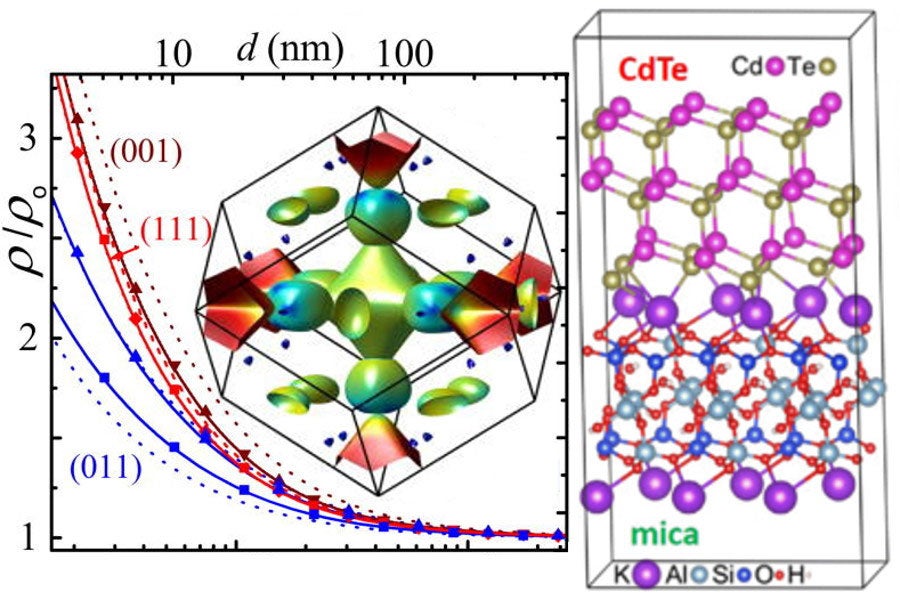
The next generation of devices for computing, communication, sensing and energy conversion demand new materials with novel electronic properties as well as techniques to synthesize these materials with high quality and control over defects. Electronic materials research at Rensselaer targets nanoscale interconnects, interfaces with designed electronic and thermal transport, new semiconductors, ferroelectrics, optical / plasmonic materials, 2D materials and materials for future quantum and neuromorphic computing architectures.
Electronic devices at nanoscale dimensions pose fundamental material property and processing challenges. Research at Rensselaer targets new metal interconnects for low-resistance charge transport in sub-10-nm wires, combining computational prediction of optimal materials with thin film and nanostructure growth techniques using both vapor/vacuum phase and electrochemical methods. Research in chemical mechanical planarization facilitates precise surface-flatness required for semiconductor interfaces, while molecularly-tailored interfaces enable control of interfacial thermal conductance, Fermi level pinning and charge transport.
The MSE faculty are also actively engaged in designing materials for new functionality in future electronic and photonic devices, with as yet unknown architectures. This involves the application of a wide range of tools spanning first-principles computational prediction of new materials, thin film deposition including epitaxial techniques and detailed characterization of crystal structure, nanoscale electronic and structural dynamics, and spectroscopy. These collaborative efforts target new oxides, nitrides, halide perovskite and low-dimensional materials for semiconducting, magnetic, thermoelectric, ferroelectric and plasmonic functionality. Computational and experimental research currently underway in the department specifically target material functionality for devices mimicking neurons in the brain for neuromorphic computers for efficient artificial intelligence, and quantum states of point defects as a platform for solid-state quantum computers.
